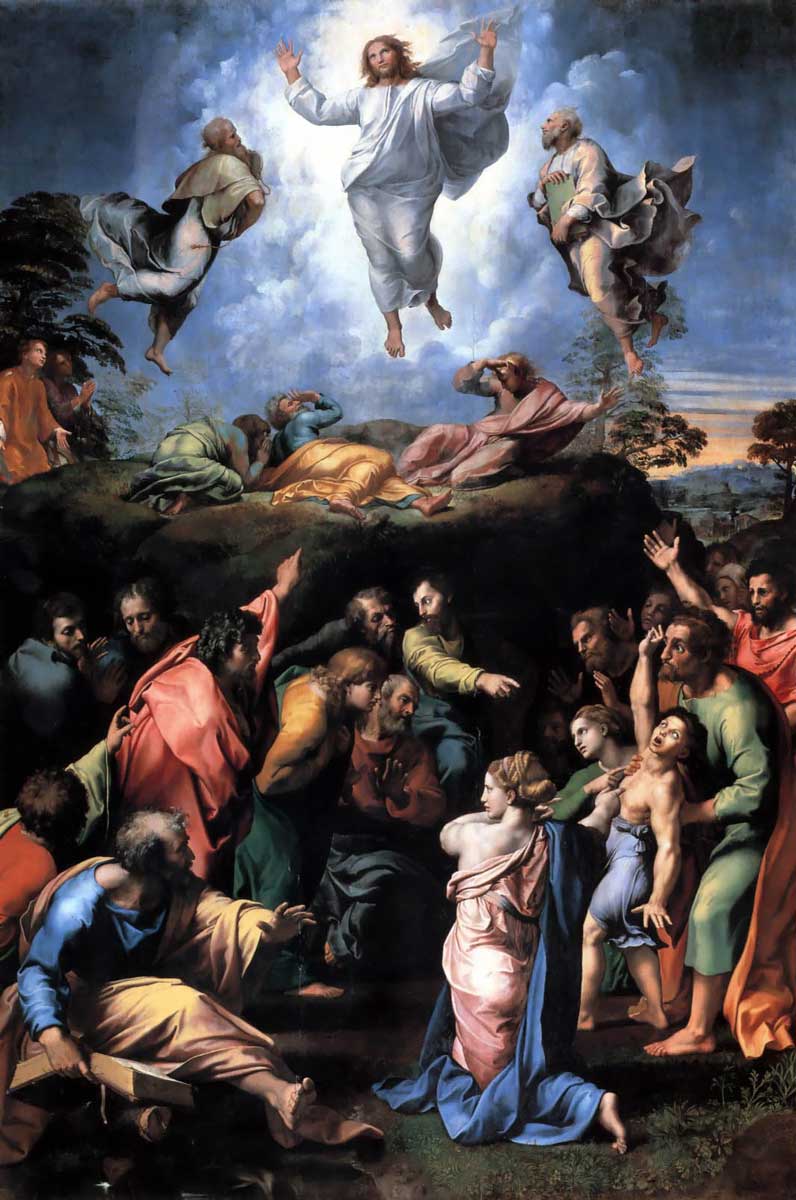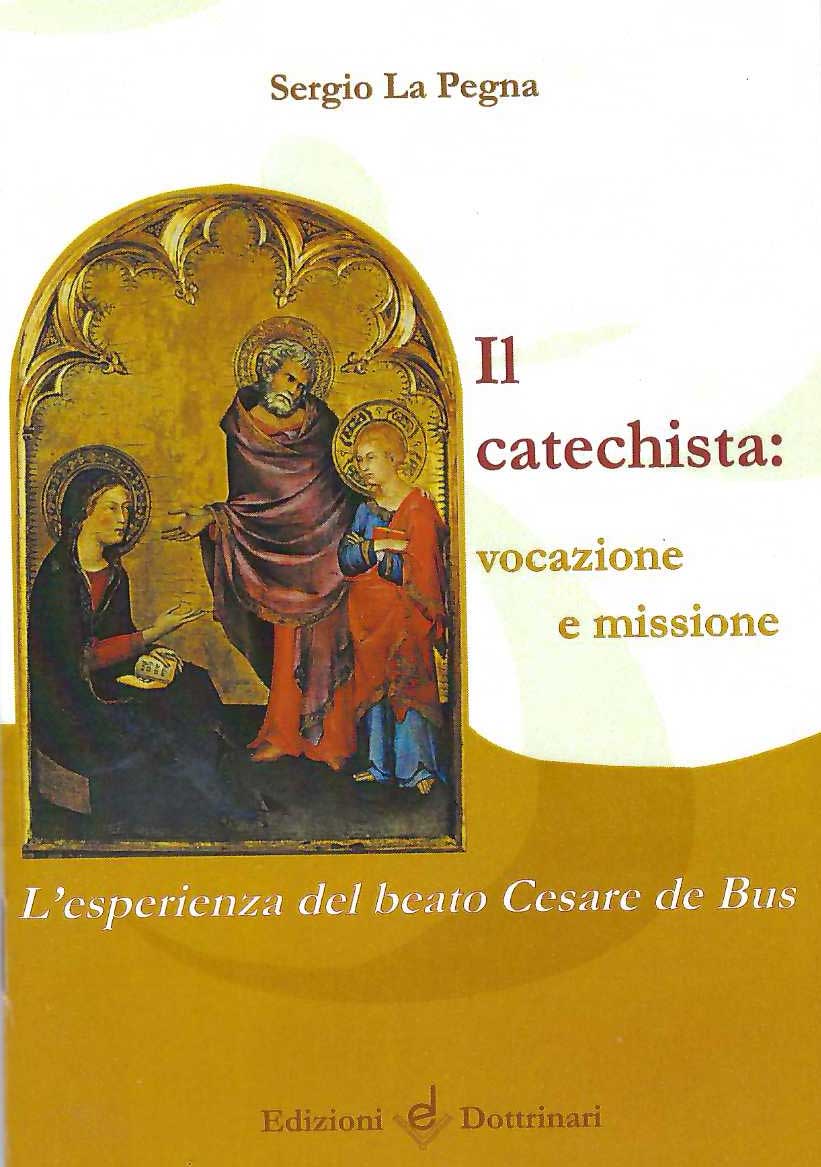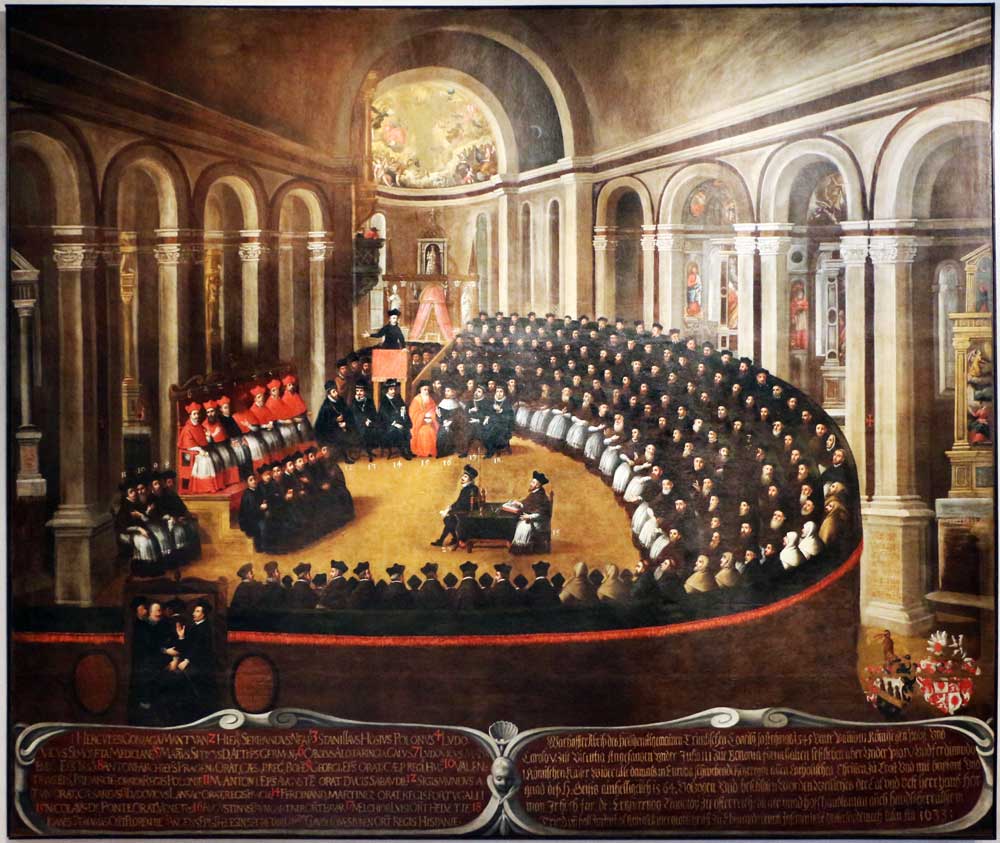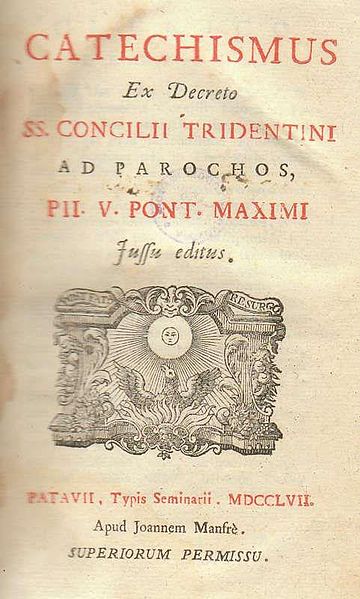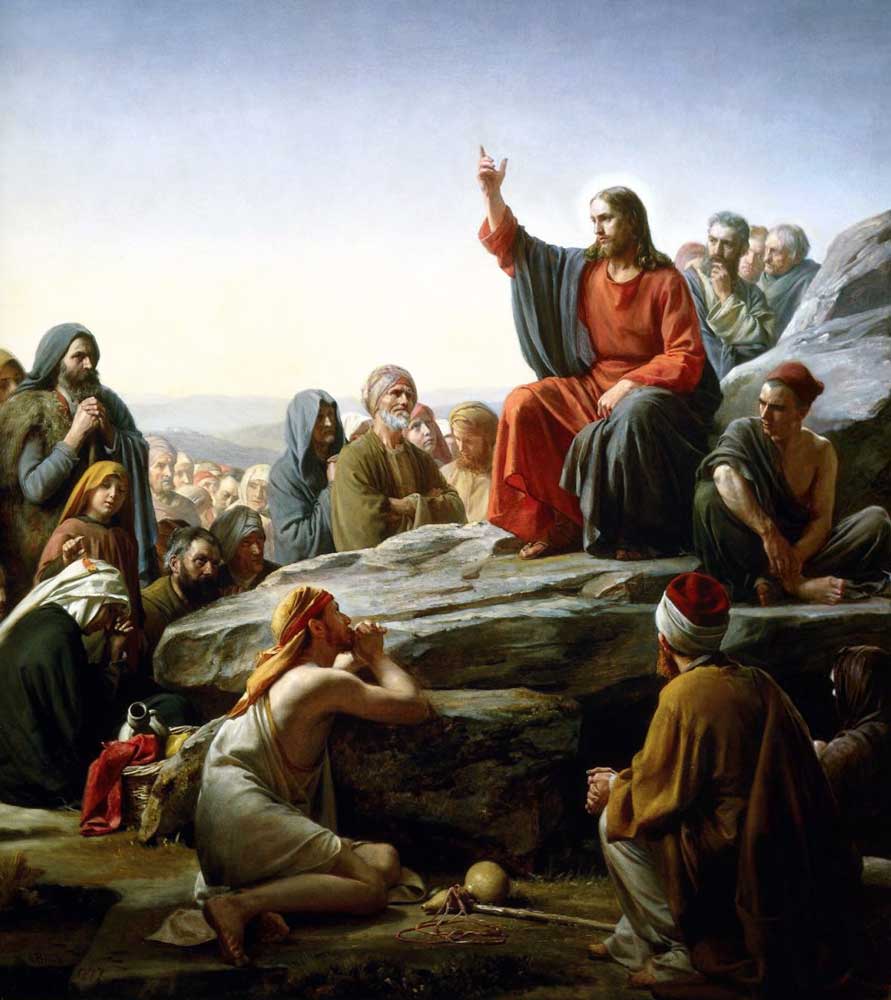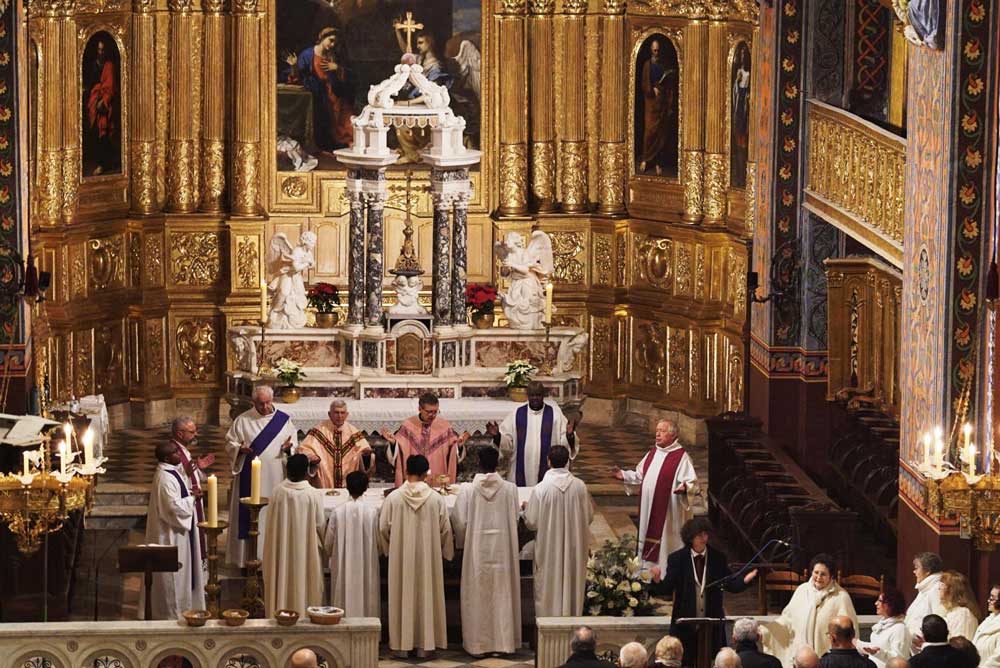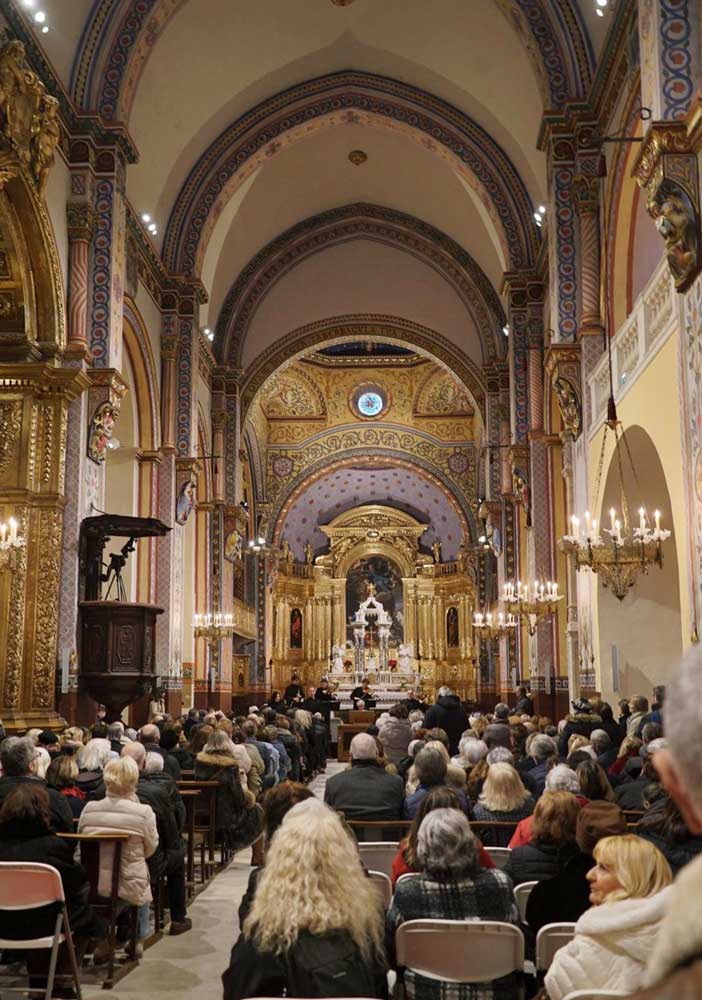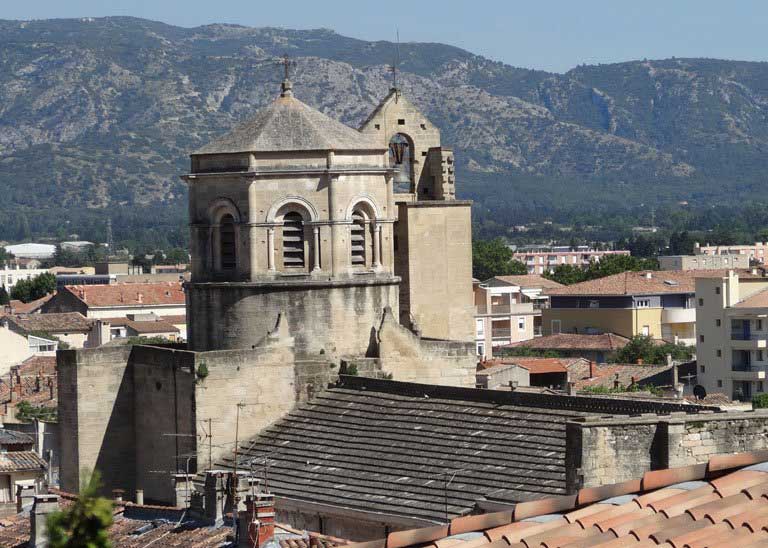The mission of the catechist according to Saint Caesar
The Catechist: Vocation and Mission
In 2013, Edizioni Dottrinari published the booklet “The Catechist: Vocation and Mission. The Experience of Blessed Caesar de Bus” by Father Sergio La Pegna, now Superior General. This excerpt aims to offer catechists some pillars on which their vocation and mission in the Church are based. All this not starting from vague theories, but from the experience and apostolate of Saint Caesar de Bus who made catechesis the main purpose of life.
The Beginnings: The Catechist
“Parents should instruct their children more by example than by words, because example is more effective than words. How do you want your children to pray in the morning and in the evening, if you never give an example? How do you want them to live a Christian life if, considering your life, they do not see even a single action done with a Christian spirit?” Saint Caesar de Bus
From 1586, for about two years, Caesar retired to the hermitage of Saint Jacques, which overlooks Cavaillon. In this place, although not in total solitude, he devoted himself to prayer, to meditation especially on the catechism “ad parochos”, he organized penitential processions, preached in the countryside, taught Christian doctrine to pastors, to simple people. During these years he decided to become a catechist!
The decrees of the Council of Trent and the example of St. Charles Borromeo are the golden rules of his apostolate. He wishes to present the doctrine of Christ, vigorously recalled by the Council of Trent, in a language that is understandable to all. In fact, he understands the urgency of presenting people with an accessible and effective preaching and he works with all his strength in this apostolic service. He gives his whole life to catechesis, especially aimed at the littlest, poorest and neediest… and all this with great passion! He gave a clear, repetitive, progressive, motivated catechesis, aimed at life and imbued with the Word of God.
He used catechism posters painted by him, displayed at the church door, as an aid to facilitate the understanding of the truths he explained; music and poetry to make teaching interesting and enjoyable; he gave prizes in the form of books, rosaries, crosses and sacred images to awaken and maintain commitment.
The Foundation of the Catechist’s Spirituality: Communion with Christ
“Fix your eyes on the Crucifix and you will know how much God has loved you. Great is the love of a friend for his friend, of a bride for her husband, of a mother for her child; but the love of our God far surpasses all loves.” Saint Caesar de Bus
At the center of catechesis we find essentially one person: Jesus of Nazareth. The purpose of catechesis, therefore, is to put us in communion with Jesus Christ: he alone can lead us to the love of the Father in the Spirit and can make us participate in the life of the Trinity (cf. CCC 426). Saint Caesar intuits that every Christian, and in particular the catechist, must first of all be a friend of the Lord Jesus and must have encountered him in his life.
A particular moment in the life of the saint recalls the spiritual dimension of the life of the catechist. For about two years, he lived in the Hermitage of Saint Jacques, on Cavaillon. Here, with his own hand, he opened a small window through which, from his room, he could contemplate, even when he was in his room, the Blessed Sacrament present in the Tabernacle. Continuous meditation on the Sacred Scripture, reading the texts of the Fathers of the Church and other saints, a filial love for the Church, especially the local one, and popular devotion were the ordinary nourishment of his spirit. In the same bedroom there was also a small window that looked out on Cavaillon, which allowed him to bring the joys and sufferings of the people into prayer. In this way Father Caesar achieved a great balance between action and contemplation. He drew effectiveness of speech and serenity of spirit from his almost continuous union with God.
In the founding speech of the Congregation, he states: “Let us announce this Word, let us teach this Doctrine, let us consecrate ourselves to this exercise and we will be Angels of Light! It is true that we would only be half so if we spread the light with our words and, at the same time, the darkness with our actions. Everything in us must catechize; our lifestyle must be so in conformity with the truths taught as to be a living catechism…” . The catechist, before saying, teaching, speaking… must live what he believes in: to be a living catechism, here is the synthesis of the spirituality of Saint Caesar.
The three mountains to climb
In a homily for the Ascension, Saint Caesar invites his listeners to become, day after day, disciples of Jesus. How? By climbing the three mountains indicated by the Lord himself: “The first is Mount Tabor, where the Lord gave us a taste of his beatitude, so that by contemplating it, we understand that all the sufferings of the present time are of no proportion to the future glory that is prepared for us (Rom 8:18). It is love for prayer. The catechist, for Saint Caesar, must nourish a constant relationship of intimacy with the Lord. He himself practices with authentic faith the common devotions of his time and his region, namely: a great love for the Eucharist, frequent meditation on the sorrowful mysteries of Jesus and Mary, the Rosary, mental prayer and meditation and sharing of the Word of God. His prayer is not only made up of an intimate relationship with the Lord, but woven with all the reality that surrounds him: everything is brought into prayer.
“The second mountain is the one on which Jesus preached to the crowds, and it is the mountain of the Word of God that we must listen to, understand, meditate on day and night and put into practice. And since through the first we learn where Jesus Christ goes and where we must aspire, through this second mountain we learn the way that leads, that is, the way of the beatitudes.” The catechist, for Saint Caesar, must be in love with Sacred Scripture. The Word of God primarily questions the one who proclaims it, so that he too can draw fruit from it for his own spiritual growth. Here is another very timely message from the saint: love, know, meditate and live the Word of God!
“Therefore one must ascend the mountain of the cross, raised high. This is the path of those who desire to become perfect.” The catechist must feel in his life and transmit the Mercy of God, which is manifested in the mystery of the death and resurrection of Jesus. Since his childhood, the saint has experienced the Love of God, through that of his family. In his conversion he is touched by God, Love that forgives. He experiences in his life what it means to be forgiven by God; to begin the path of life again, abandoning oneself into the hands of God, trusting blindly in Him. This total trust in God is based on the mercy that God himself has shown in the saving mission of Christ, who died on the cross to redeem us from sin. The discovery of the saving reality of the cross will lead Father Caesar to have a profound devotion for the Passion of Jesus and the desire to share and share with others this great love of God for men. This love for the Paschal Mystery will lead Father Caesar to build many small crosses on which the mysteries of the Passion of Jesus were painted. He then distributed them so that people could wear them around their necks; together he gave the Exercise of the Cross which consisted in feeling, in every moment of life, the saving power of the Paschal Mystery. It is daily life, made up of joys and sorrows.
In summary, here are the three salient points of the spirituality of the catechist, according to Saint Caesar:
- learning to listen, that is, to love, know, meditate and live the Sacred Scripture;
- contemplating the Mercy of God, which is manifested, in particular, in the mystery of the death and resurrection of Jesus; only in this way can one live in the continuous search for truth and can one explain Christian Doctrine with accessible language;
- accepting that the Word of God converts me, changes me totally, as She wants, not as I want;
- nourishing one’s life, with Eucharistic Adoration and the prayers that the Church, our mother, gives us;
- living a commitment in the local Church, according to the vocation received, making available to the Lord all the gifts received from Him.
The five pillars of the catechist
“We must believe the truths of the Creed with a faith capable of moving mountains, pray the petitions of the Our Father with a hope that will never be disappointed, practice the Commandments of the Decalogue with a love as strong as death, hard as Hell; finally we must receive and administer the Sacraments with a purity worthy of that water that springs up to eternal life and of which they are the source and channel.” Saint Caesar
“I pass on to you what I also received” (1 Cor. 15:1). The catechist is called to help others in meeting and knowing the Lord Jesus. To do this, he himself must continually grow in this friendship. Saint Caesar, starting from his experience, finds five pillars on which to build his relationship with the Lord: love for Sacred Scripture, Eucharistic Adoration, devotion to Mary, the invocation of the Angels and Saints, and spiritual accompaniment.
The Holy Scripture
Father Caesar’s entire life revolves around listening. From a young age, Caesar loved the word, first that of men and then that of God. He liked to write plays, which he put on with friends. Antonietta Reveillade admonished him: “God speaks to you and you do not listen to him”. But at a certain point Caesar begins to listen and from there begins a fundamental change in his life. He was nourished by the Sacred Scripture, he made it the object of his meditation and contemplation. In all the works attributed to him we find many biblical quotations. For Saint Caesar, “listening to the Word” also means understanding it, loving it, believing in what it announces and putting it into practice; in it one finds the strength and courage to live the earthly pilgrimage serenely. The Word of God primarily questions the one who proclaims it, so that he too may draw fruit from it for his own spiritual growth. He considered mental prayer as a deep conversation with the Lord, he dedicated at least an hour a day to it, especially meditating on the Passion of Jesus. For this reason he also got up at night to pray.
As for what Father Caesar meant by “meditation,” Sister Catherine de la Croix reported during the Canonization Process: “Father Cesare was always immersed in contemplation, meditating on all creatures, admiring the work of God in them and discovering God in all things, for example by observing the leaf of a tree. When he spoke to me about spiritual things, he manifested such fervor of spirit, combined with such profound competence, that everything else around us disappeared. Therefore, one day I asked him who had taught him to meditate. He replied: “Guess, my teacher could have been there!”. By this he meant the Lord himself.”
St. Caesar says: “What does it mean to listen to the Word of God? Is it enough just to listen to it? Yes, as long as it is put into practice, because not those who hear the law are righteous before God, but those who put it into practice will be justified (Rom 2:13). Samuel understood this truth well, and therefore he said to the Lord: ‘Speak, O Lord, for your servant is listening‘ (1Sam 3:9). He who is of God, that is, he who is in God’s grace, he who has God within himself, he who is full of God, listens to his Word, loves his Word, believes it and puts it into practice; all this is included in the verb to listen (cf. Lk 11:28).”
Eucharistic Adoration
Father Caesar maintained a great devotion to the Blessed Sacrament. He said that he would have preferred to suffer the loss of what was dearest to him rather than miss the celebration even once; in this regard he commented: «I am amazed and cannot understand how some can feel bored in the celebration of this mystery rich in such great and inexpressible consolations. My devotion in celebrating Mass increased day by day, I was inundated with an ever new sweetness». And to a brother who, before receiving priestly ordination, went to him to receive the blessing, he said: «I would like you to taste the same joy that I felt when I became a priest. In fact, as soon as I heard the Bishop exclaim: “Receive the Holy Spirit”, my heart was so moved that I felt inundated with an inexpressible happiness. Then I burst into tears. I cried so much that some of those present mocked me. The truth is that I couldn’t hold back the tears because of the intense joy I felt.”
Here is the invitation that still comes to us today: let us enjoy the Eucharistic Celebration, in which Christ gives himself to us today, in which we learn to live the logic of love and service.
Devotion to Mary
Saint Caesar in his autobiography states that he received this devotion from the Lord since he was a boy, in particular towards the Immaculate Virgin: «The first grace that God bestowed on me, after baptism, was a singular devotion to the Blessed Immaculate Virgin Mary, a devotion that I have increased since my youth; in fact every day I recited some prayers in honor of the Virgin… I remember that outside the city of Cavaillon there is a chapel dedicated to Our Lady of Mercy. It was then frequented by many needy people who offered candles and other gifts and kissed the sacred image. I, still dressed as a nobleman according to my social class, wanted to imitate the poor and the indigent. I offered large sums of money, humbly waiting to present my offering, after the poor had finished their devotions. I continued this practice for a certain time. One day towards evening, while I was praying, the Blessed Virgin Mary appeared to me in the guise of the image that I had kissed. The apparition persisted for a long time with such sweet consolation that I could not detach myself from it. In the saint’s writings, Mary is seen as the Mother of mercy, who intercedes for us pilgrims on earth and in constant need of God’s forgiveness and as the Mother who, at the foot of the Cross, suffered more than any martyr, participating in the passion of her beloved Son. In particular, Mary is venerated by him with the recitation of the Rosary. In a confidence made to Father Larme, who assisted him in his last illness, and collected by Father Marcel, his biographer, the saint said that he had recited “at least twenty thousand times the Rosary during the 14 years of progressive blindness”. A recitation that was certainly not mechanical or habitual if he suggested to others to recite it with great devotion. During his forced inactivity, due to an illness, Saint Caesar spent his time “making rosaries”. Having recovered from his illness, but still unable to resume his duties due to persistent weakness, he persevered in that work, going himself to the fields to collect the type of wood suitable for weaving rosaries. Marcel wrote: “The Blessed was thus able to introduce the practice of the Rosary to Cavaillon, his hometown, offering the opportunity to many ecclesiastics to carry it on their belts and to many lay people to have it with them.” To this end, he not only gave away the rosaries he had made, but also taught how to recite them. To those who boasted of having received the rosary he had made, in the unmistakable style of a humble disciple of Christ, he suggested “not to boast so much about that fact, but rather to recite it with devotion.” In the last days of his life, unable to speak, he asked Father Larme, his nurse, to recite Marian ejaculatory prayers aloud for him. During the day he was often heard praying with the invocation “Holy Mary, mother of grace.”
The catechist also finds in Mary the Mother who supports his life and his work and who accompanies him in the noble aim of bringing others to her Son Jesus.
The Invocation of the Angels and Saints
Saint Caesar also had a great veneration for the Angels and the saints. Thus he said to Catherine de la Croix, abbess of the Monastery of Cavaillon: “If you knew the joy that one feels in praying to the saints, you would be amazed. I think that a true devotee of the saints is also a saint.” He wanted to place every hour of the day under the protection of a saint and invoked him with several ejaculatory prayers.
Being a catechist and announcer of the Word of God is seen by Saint Caesar as being an angel of light. Christian Doctrine is the light that illuminates all men and gives them joy, serenity and hope. By announcing the Doctrine, catechists become messengers of this light that spreads both with words and with the testimony of life.
Thus he expresses his love for the Angels and the Saints: “We must honor the Angels and pray to them, because they are our intercessors, because they are Messengers of God, as their name teaches us. We must honor them because God has given them to us as protectors and guardians. They do not cease to pray for us and to offer to God our prayers, our sacrifices, our works, as the Angel said to Tobias (Tb 12:12). We must honor them and invoke them because they are always in the presence of God and are His Ministers, because they are our guardians who defend us with strength and love and pray for those who invoke them. What I have said so far of the Angels, I must also say of the Saints, who reign with God in the heavenly homeland, because they too deserve to be honored and invoked by us. For we know how great are their merits, how efficacious their prayers, and how great is their credit with God. Someone will say: it is true that the Saints prayed while they were alive, but now that they are in glory, filled with the abundance of the house of God, they no longer think of us. I answer that, as Ecclesiasticus says: a friend loves his friend at all times (Prov 17:17), and, as the Apostle says, when one member suffers, all the members suffer (1 Cor 12:26). Now the Saints are not only our friends, but also our brothers and members of the same body in Jesus Christ and in his Church. And if, while they were alive, they had charity and compassion for the sick members, they have it even more now in the blessed homeland where, although stripped of this mortal body, they are not stripped of the love they bore us, because the soul that left the body in charity, perseveres eternally in charity, which never fails (1 Cor 13:8). In this regard, St. Bernard says that if the Saints, while they were alive, had compassion for sinners and prayed for them, they will do much more now in the heavenly homeland, where they know our miseries better, because their charity, instead of diminishing, has increased in heaven. The Saints, therefore, in heaven having greater charity and knowing better our needs of spirit and body, have greater compassion for us and, consequently, if we have recourse to them, they willingly pray for us”. Finally, in his spiritual testament he recommends the friendship of a Saint: “Choose a saint among all, imitate him and read his life often. Pray to him every day so that he may communicate to you his spirit and his holiness. Try to be his devotee and courageously follow in his holy footsteps so that, like him, you may have the same desire to go to heaven.”
Spiritual accompaniment
In the journey of sequela Christi, Saint Caesar let himself be guided by other people, showing them his feelings, his difficulties and his joys. The first two spiritual guides are two lay people: Antonietta Reveillade, a simple and illiterate woman and Luigi Guyot, sacristan of the Cathedral of Cavaillon.
After the first moment of repentance, Caesar tells Larme: “I felt so shocked, as if by a divine force, that I quickly retraced my steps and returned home where I told everything to Antonietta. She, recognizing the work of the Holy Spirit, gave thanks to God and, after having encouraged me with words of consolation, she enjoined me in no uncertain terms: “My Lord, make up your mind”… It was she again who gave me courage… She suggested that, in case I wanted to dedicate myself to the service of God, I visit and become friends with Luigi Guyot”.
Antonietta sends Caesar to Luigi with the aim of “learning from him the principles of spiritual life. I obeyed him – continues the saint – by carrying out his orders and allowing his opinion and prudence to prevail in everything”. In turn, Luigi, directs him to the Jesuit Father Pequet, with whom Father Caesar does spiritual exercises. The Jesuit Father also follows him in his studies resumed, deciding to give him lessons himself in this way: Cesare, after finishing his morning meditation, wrote down in French the feelings, inspirations and interior lights that God had communicated to him; he then translated from French to Latin what he had written and gave it to his confessor. The latter thus obtained two results: correcting any errors in the composition and knowing the progress made in the spiritual life. This message is very timely for us too: feeling the need to be accompanied on our spiritual journey and to have a guide who helps us discern the signs of God’s presence in our life.
The mission of the catechist: the exercise of Christian Doctrine
“‘Your Word is a lamp to my feet, a light to my path’ (Ps 118:105). Let us proclaim this Word, teach this Doctrine, devote ourselves to this exercise and we will be Angels of Light! It is true that we would only be half so if we spread light with our words and, at the same time, darkness with our actions. Everything in us must catechize; our lifestyle must be so in conformity with the truths taught that it is a living catechism”. Saint Caesar
Living Catechism
The catechist carries in his heart the desire to transmit to others the joy of the encounter with the Lord. When Saint Ignatius of Loyola sent Saint Francis Xavier to the East, he told him: “Go, set all things aflame!” This was also the experience of Saint Caesar. The entire catechetical work of de Bus makes him a true example of a herald of the Word of God and the mysteries of faith. He repeatedly states that Christian Doctrine is the pillar and foundation that supports the Church and the fastest way to walk on the path of salvation. In a period of material and spiritual poverty, the saint is convinced that the best way to “arrest present evils and prevent worse ones from arising” is the teaching of Christian Doctrine. In the founding speech it is written: “Let everything in us catechize, let our lifestyle be so in conformity with the truths taught that it is a living catechism.” Thus he dedicates himself totally to his local Church, loving all the people he meets. We can affirm that his experience of the Mercy of God, his nourishment of the Word of God and the Eucharist, as well as his devotion to Our Lady find their concretization in the teaching of Christian Doctrine and “in the exercise of charity”. Catechism is not intended by him as a lesson, but as an exercise, practically as a testimony that totally involves the teacher and the disciple; the exercise is a formation, an education in faith, that is, it tends to ensure that the disciple encounters, in faith and in love, Jesus Christ.
Faithfulness to God and to people
The teaching of Christian Doctrine must respond to two fundamental and complementary dimensions: faithfulness to God and faithfulness to people. By faithfulness to God it is meant that the Word is not the property of the Church and the catechist, but a gift from the Lord that must therefore be welcomed with faith. Transmitting the doctrine of faith therefore means being faithful to the deposit of revelation and not compromising on overly personal arguments and partial interpretations that do not correspond to what God wanted to reveal and what the Magisterium of the Church authoritatively interprets and delivers to the faithful. By faithfulness to people, Saint Caesar is convinced that it is necessary to carry out a specific catechesis, differentiated in method so that the Word of God can truly appear as an answer to the questions of children, teenagers, young people and adults, to their questions and needs for truth and life. Being a catechist does not only mean transmitting the Word of God well, but above all living it and communicating it in the testimony of one’s own love for God. The catechist is the first “living catechism” through which children, young people and adults can discover the truth of the Gospel and welcome it.
Il metodo
Saint Caesar organizes the exercise of Christian Doctrine in two cycles:
- the small doctrine: aimed at those who knew nothing, therefore especially children and the ignorant, who learned prayers, the sign of the Cross, the commandments and the sacraments through dialogue and memory;
- the large doctrine: while maintaining the concreteness of the language, it was done from the pulpit on Sundays and on solemn feasts and consists of a broad and very easy explanation of the Apostles’ Creed, the Our Father, the Commandments, the Precepts of the Church and the Sacraments.
Without a doubt, this is a classic program of catechesis, as the Council of Trent envisaged in its catechism. Saint de Bus, however, makes the exposition lively and attractive through dialogue, free discussion or with sacred representations.
The doctrinaries tradition has distinguished itself, along the lines of Father Caesar, for the search for a lively and inventive catechesis, immediate, made with simple words, few formulas, plastic and easy to remember. Marcel, the first biographer of Father Caesar, states that his way of announcing the Word was very simple and therefore within everyone’s reach. He avoided, as if they were dangerous reefs, refined terms, as well as useless and curious arguments, although pleasant to listen to. His catechesis was well structured, balanced, presented with grace and fervor in such a way that not only the simple people, but also the educated people received satisfaction and profit from it. His intent was not to make his listeners learned, but more believers. Around this scheme a preaching steeped in Sacred Scripture was formed, presented in such a way that the notions learned were translated into a spiritual attitude and a way of acting. These indications have entered the doctrinaries tradition, as the caput summum of the Constitutions shows us: «In the development of the discourses, controversies should not be proposed, nor difficult questions raised, nor doctrinal novelties touched upon; instead, comparisons and examples should be frequent, carefully chosen; sayings and deeds of pagan writers should not be cited except rarely and with the utmost prudence, as well as fables and other similar profane expressions; no citations should be made in Greek or Hebrew, few in Latin and nothing that is not immediately translated into the vernacular and, if it is about the Sacred Scripture, adhere to the strictly literal sense. A flowery, refined and overly elaborate style should not be used, but a simple and familiar language, above all pious and suitable for arousing devotion. At the end, a recapitulation of the things said by topic should be made and in everything the method of teaching that the Founder entrusted through his writings and his example and recommended with his words should be followed». The scholar of the history of catechesis, the Salesian Braido, states that the original catechetical experience of Saint Caesar and the Doctrinaries is entrusted to a rich collection of catecheses (for the use of the catechist), divided into 4/5 parts (according to the first and third editions of 1666 and 1685), gathered under the title Instructions familières. The following characteristics of structure and style are found in them:
-
- adoption of the now classic division (with changed succession) of Christian doctrine into the Creed, Commandments, Lord’s Prayer, deadly sins, Sacraments;
- division into “lessons”, or into topics according to their logical insertion: the articles of faith, the precepts of God and the Church, the questions of the Pater, the seven deadly sins, the seven Sacraments;
- further subdivision of the individual “lessons”, into two, three or four teaching units;
- enrichment of systematic “lesson” with an introduction, a final practical example and the repetition of the material learned, often also intended as a preliminary moment of the catechetical meeting or subsequent didactic lesson;
- extremely flexible use of the technique of questions and answers, not predetermined by a doctrinal booklet or by an interrogation and not flowing into memorization, but into consensual and vital assimilation;
- adoption of a simple and familiar language, fervent and affectionate, with the copious reference to examples and scriptural and patristic sentences;
- fusion of “theory”, devotion and practical commitment.
The Instructions familières, Braido states, can be considered a «catechetical theology», understood as an elementary and living theology for catechists and a lived and stimulating manual of catechistic methodology, imbued with spirituality and rich in pedagogical and didactic ideas. In Italy, the texts of O. Imberti (1650-1731), author of a Christian Doctrine, for children, for little ones and for «the most tender children» (Viterbo 1710), and of Giuseppe Domenico Boriglioni (1652-1735), who composed three distinct works: a large Christian Doctrine for adults and families, a Compendium and a Compendium for the Little Children, have remained witnesses and bearers of it for a long time.
Conclusion
Catechists are called to be witnesses and participants in a mystery that they themselves live and communicate to others with love. They themselves experience that they have been saved, that they have received the grace of faith from God and they commit themselves to accepting and understanding it, in an attitude of humble simplicity and ever new research. Educators of their brothers in the faith, they are debtors of the Gospel that they proclaim and in turn allow themselves to be educated by the faith and testimony of all. A concrete coherence of life is necessary for catechists to “see” the faith, before proclaiming it. The testimony of life is essential, when one wants to proclaim and spread the faith. Therefore, catechetical teaching leads to the Christian education of those who listen to them, leading them to a coherent testimony of life. The prophetic vocation requires catechists to have a solid ecclesial spirituality, serious doctrinal and methodological preparation, constant communion with the magisterium, and profound charity towards God and towards their neighbor. These indications mentioned above, contained in the document The renewal of catechesis (nn. 1985-189), confirm the profound relevance of what, over four hundred years ago, Saint Caesar implemented and achieved. On the other hand, the Saints show us the way to become happy, they show us how to be truly human people. In the events of history they have been the true reformers who have so often lifted it from the dark valleys into which it is always in danger of sinking again; they have always illuminated it anew. The hope is that catechists can find in Saint Caesar a point of reference in their journey of following Jesus and of announcing the Gospel.
ESSENTIAL BIBLIOGRAPHY
AMATO, A., I Santi evangelizzano, Città del Vaticano, 2013.
AMOURIER P. – LA PEGNA S., Il B. Cesare de Bus e la Congregazione dei Padri della Dottrina Cristiana. Da oltre 400 anni a servizio della catechesi, Cinisello Balsamo (MI), 2007.
BRAIDO, P., “La scienza della salute fondamento ed essenza della formazione umana nell’azione apostolica di Cesar de Bus”, in P. BRAIDO, Esperienze di pedagogia cristiana nella storia – Sec. IV – XVII, vol 1, Roma 1981, 269-324.
BRAIDO, P., Lineamenti di storia della catechesi e dei catechismi, Roma 1989.
DE BUS, C., Istruzioni Familiari, Roma 1878-1879 (2 Volumi).
DE BUS, C., Omelie sopra i 4 Vangeli, Roma 1875-1876 (2 Volumi).
DE BUS, C., Discorsi catechistici, Roma 1879.
DE VIGUERIE, J., Une ouvre d’education suos l’ancien regime, lés péres de la doctrine chrétienne en France et en Italie, 1592-1792, Paris 1976.
DU MAS, P., La vie du Venerable Cesar de Bus, foundateur de la Congregation de la Doctrine Chrétienne, Paris 1703.
MARCEL, J., La vie du R. P. César de Bus, 1619, trascritta e ciclostilata da p. Mario Francone, Roma 1978.
PERIZZOLO, G., Sulle orme dei padri. I dottrinari 1592-1992, Salerno 1993.
PREVITALI, B., Il Beato Cesare de Bus nella testimonianza del p. Antonio Larme, Salerno 1987.
PREVITALI, B., La Parola di Dio nella vita del Beato Cesare de Bus, Salerno 1993.

